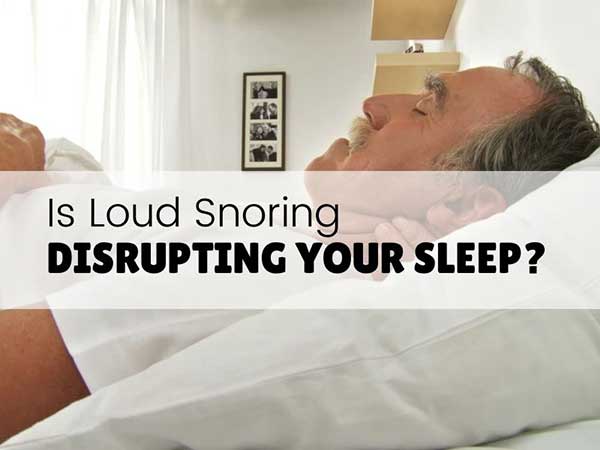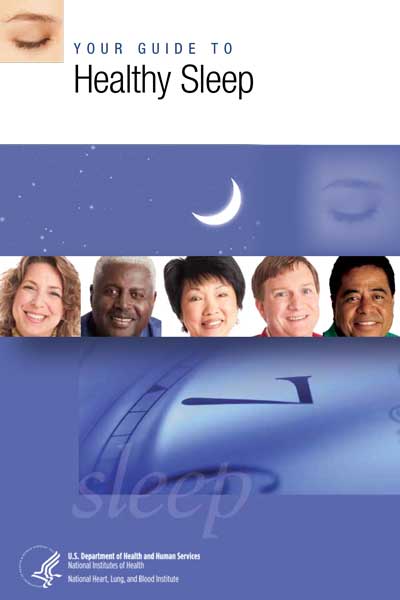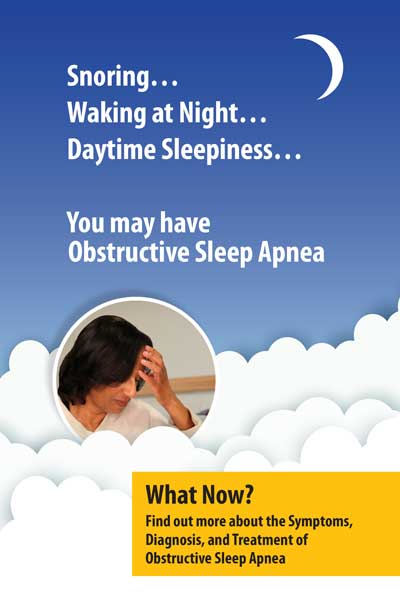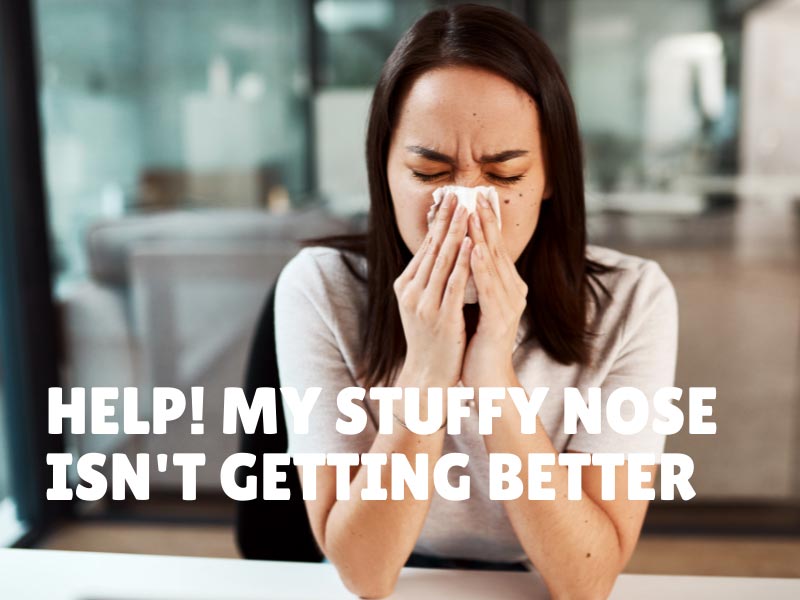Is Loud Snoring Disrupting Your Sleep?

Not getting enough restful sleep is quite literally, exhausting!
Sleeping poorly at night can have compounding negative effects. Feeling tired throughout the day is just one side effect of bad sleep.
According to Mary Wells’ article in The Neurodiagnostic Journal, chronic poor sleep also “decreases productivity and performance, and increases mortality and morbidity. The National Sleep Foundation estimates that poor sleep costs America billions of dollars each year and greatly compromises public safety and health.”
Signs You Are Not Getting Enough Sleep
- Persistent yawning
- Accidentally dozing off during sedentary activities like watching TV
- Grogginess when you wake up
- Grogginess that lasts all day
- Poor concentration and mood changes or irritability
If you’ve noticed these symptoms and feel that you are not sleeping well, it could be caused by several different issues. Stress and depression can play a part in poor sleep quality. You may also be snoring, or suffering from sleep apnea, both of which can disrupt sleep and negatively affect you throughout the day.
Sleep Apnea Signs and Symptoms
It is common for your partner to be the one who notices your breathing problem. When someone stops breathing during the night, they wake up briefly, which restarts their breathing. As a result, many don’t realize that they had stopped breathing, or what caused them to wake up.
Some signs that you might have sleep apnea are:
- Loud snoring
- Persistent sleepiness
- Restless sleeping, waking up frequently at night
- Waking suddenly with the sensation of gasping or choking
- Morning headaches
- Memory loss
- Dry mouth or sore throat upon waking
- Mood changes, such as increased anxiety or depression
- Frequent nighttime urination
- Night sweats
Children can also suffer from sleep apnea, and their symptoms may not be as obvious. Some signs and symptoms of sleep apnea in children include:
- Below average performance at school
- Sluggishness or sleepiness, which may be misinterpreted as laziness in the classroom
- Mouth breathing and difficulty swallowing during the day
- Inward movement of the ribcage when inhaling
- Unusual sleeping positions, such as sleeping on the hands and knees, or with the neck hyper-extended
- Nights sweats
- Learning and behavioral disorders such as hyperactivity or attention deficits
- Bedwetting
Helpful Resources
How Snoring Affects Your Sleep
Snoring is a common occurrence, especially in men and overweight individuals. It is also common for snoring to get worse with age. Unfortunately, even though snoring is common, it can be quite bothersome and can negatively affect your quality of sleep, too.
One way that snoring takes a toll on is its effect on your partner. Snoring can be very disruptive to your partner’s ability to sleep. This can cause tension, relationship problems, or cause your partner to sleep in another room.
Snoring can also cause you to wake up at night, quite literally snoring yourself awake. If this happens several times a night, you quickly lose your quality of sleep, and it may prove difficult to fall back to sleep quickly.
You may be snoring as a result of your tongue relaxing too much as collapsing into your throat. If this is the cause of your snoring, you are probably waking up repeatedly during the night, causing sleep deprivation and a whole host of negative side effects.
There are many causes of snoring, such as allergies, sinus infection, or deviated septum. so it is important to identify the underlying cause of your snoring. A Port Huron ENT provider can help you determine what underlying conditions that may be contributing to your snoring or daytime fatigue, and how to best treat them.
It is important to note that snoring itself may be a symptom of a more serious issue, such as sleep apnea.
What is Sleep Apnea?
Sleep apnea is a common condition that causes your breathing to stop or get very shallow. Breathing pauses can last from a few seconds to minutes and can prevent your body from getting enough oxygen.
The most common type is obstructive sleep apnea. It causes your airway to collapse or become blocked during sleep. Normal breathing starts again with a snort or choking sound. People with sleep apnea often snore loudly. However, not everyone who snores has sleep apnea. You are more at risk for sleep apnea if you are overweight, male, or have a family history or small airways. Children with enlarged tonsils or adenoids may also get it.
The Effects of Untreated Sleep Apnea
If left untreated, sleep apnea can cause a whole host of serious and long-term health problems. Some of the more serious side effects of sleep apnea can include:
- Hypertension
- Stroke
- Arrhythmias
- Cardiomyopathy (enlargement of the muscle tissue of the heart)
- Heart failure
- Diabetes
- Obesity
- Heart attacks
In fact, there is a very strong relationship between sleep apnea and heart problems. Nearly 50% of people with heart failure and atrial fibrillation also suffer from sleep apnea. And this correlation isn’t random. The heart is so profoundly affected by sleep apnea because it causes frequent episodes of hypoxia (the dropping of oxygen levels), changes in carbon monoxide levels, pressure changes in the chest, and increased markers of inflammation.
Sleep apnea can be serious, but there are treatment options.
Sleep Apnea Treatments
Mild cases of sleep apnea can be treated with lifestyle changes. Often, losing weight if you’re overweight can significantly reduce sleep apnea symptoms. Adding regular exercise to your healthcare regime and cutting out alcohol and cigarettes are also effective ways to combat sleep apnea.
If these options don’t sufficiently treat your sleep apnea, or if you have been diagnosed with moderate to severe sleep apnea, you may require additional therapies. Some of the most common are:
- Positive airway pressure is an extremely effective sleep apnea treatment. The most common is a continuous positive airway pressure (CPAP) device. A CPAP machine can reduce the number of respiratory events that happen over the course of the night. This results in deeper, more restful sleep and alleviates the more harmful effects of sleep apnea.
- Mouthpiece devices are also an option for those with mild to moderate sleep apnea, or for those who are unable to use a CPAP.
If you or someone in your household is struggling with loud snoring or fatigue, help is available. Schedule your visit with a Port Huron ENT provider today!





